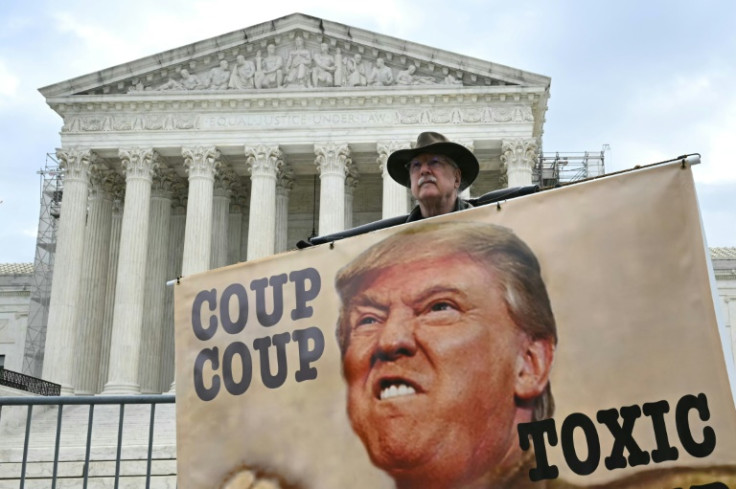
The Supreme Court ruled Monday that former President Donald Trump has some immunity in his federal election interference case. The decision quickly led to a pouring of opinions from lawmakers and Latino advocates alike.
The 6-3 ruling will affect whether Trump faces a federal trial this year on four felony counts brought by special counsel Jack Smith, including conspiracy to defraud the U.S. and obstruction of an official proceeding, for his attempts to overturn his 2020 election loss to President Joe Biden. Trump has denied any wrongdoing.
The case is expected to now be sent to lower courts to continue proceedings. However, when and if the trial does proceed, it may be with a significantly whittled-down set of evidence.
Chief Justice John Roberts wrote the majority opinion, stating a president "may not be prosecuted for exercising his core constitutional powers and he is entitled, at a minimum, to a presumptive immunity from prosecution for all his official acts."
However, according to the decision, the president does not have immunity for "unofficial acts" and not every act a president does is official. Roberts also assured that the "President is not above the law."
The rest of the conservative bloc, including Justices Clarence Thomas, Amy Coney Barrett and Samuel Alito, joined Roberts' majority opinion. On the other hand, the court's three liberal justices dissented, with Justice Sonia Sotomayor saying the conservative majority "gives former President Trump all the immunity he asked for and more."
Reactions from lawmakers and Latino advocacy groups
The controversial decision quickly drew the attention of the public, with some Democratic personalities and Latino advocacy groups showing their opposition.
Hillary Clinton reacted to the Court's ruling on X, writing that she agreed with Justice Sotomayor's dissenting opinion.
"With fear for our democracy, I dissent," the former First Lady and career politician wrote quoting Sotomayor's opinion. "It will be up to the American people this November to hold Donald Trump accountable."
I agree with Justice Sotomayor about the immunity ruling from the MAGA wing of the Supreme Court:
— Hillary Clinton (@HillaryClinton) July 1, 2024
"With fear for our democracy, I dissent."
It will be up to the American people this November to hold Donald Trump accountable.
Similarly, Vanessa Cardenas, Executive Director of America's Voice, a leading Latino rights advocate, issued a statement where she argued the court's ruling would have "terrifying" immigration implications in the U.S.
"Today's ruling promises to replace our system of checks and balances with bright green lights to empower the nativist fever dreams of Donald Trump and Stephen Miller," she wrote. "This is terrifying from the perspective of immigration, American values, democracy, and our national economic interests."
She continued by arguing that the decision will lead to virtually no legal constraints to what a president can and cannot do in an "official" capacity unless both houses of Congress agree to impeach and remove from office the sitting president.
"The prospects are terrifying," Cardenas' statement read. "From military and red state National Guard troops terrorizing American communities and putting long-settled immigrants into military detention camps to bombing Mexico with impunity to virtually every other horrific immigration scenarios one can conjure up."
Republican reactions to the ruling
Conversely, Republicans are celebrating a triumph, praising the ruling as a rejection of what they characterized as Democrats' using the government against Trump for political purposes.
Senator Steve Daines of Montana, who leads Republicans' Senate campaign arm, said the Supreme Court had ended a "sad chapter of Joe Biden's weaponization of the Justice Department."
Similarly, Stephen Miller, a top Trump adviser, called the decision "another setback for the Democratic Party's illegal and unconstitutional crusade to outlaw dissent, jail the opposition leader, impose authoritarian rule, replace democracy with the deep state and liberty with leftwing oligarchy."
© 2025 Latin Times. All rights reserved. Do not reproduce without permission.




